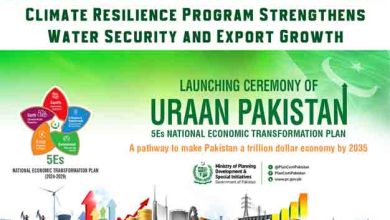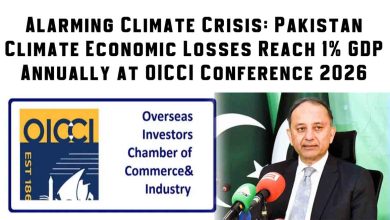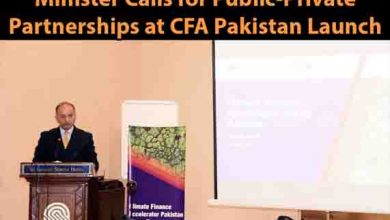Pakistan School Coop 28 declared the winner of the sustainability competition in the conference
The prize was awarded for water conservation and organic farming, with India and Bangladesh competing in the final
A Pakistani school has won the prestigious $100,000 Zayed Sustainability Prize after being named the best global school in South Asia at the United Nations Climate Conference COP 28 in Dubai on Friday. Kashmir Orphan Relief Trust (KORT) School and College of Excellence was awarded this prestigious award for
presenting an innovative project on water conservation and organic farming.
The school was competing for the prize against two other finalists from India and Bangladesh.
Two young representatives of the trust were present at the gathering at Dubai’s Expo City where the award was presented by the President of the United Arab Emirates, Sheikh Mohammed bin Zayed.
The Zayed Sustainability Prize honors the legacy of Sheikh Zayed bin Sultan Al Nahyan, the founding father of the United Arab Emirates, by recognizing small and medium-sized enterprises, non-profit organizations and high schools in the fields of health, food, energy, water and climate. Rewards are given for tackling related challenges.
The prize has been awarded to 106 recipients over the past 15 years who have positively impacted the lives of 384 million people worldwide.
Nineteen-year-old Samea Bibi told Arab News after receiving the award from the trust, “Our plan is on water conservation because in 2025 Pakistan will run out of clean drinking water.”
After his parents died in the 2005 earthquake in Pakistan’s Kashmir region, he set a course for himself by focusing on climate-related projects.
He said, “We want to install water filtration plants and sensor taps in our school to minimize water wastage. We also want to create a kitchen garden in our school through organic farming so that children can learn organically.” But can get nutrition from the food grown.”
The School and College of Excellence is located in Azad Kashmir and was established in 2016 for children orphaned by the devastating Kashmir earthquake. This institution is providing services to more than 500 students.
The trust has also opened another school in Swabi in October this year with a capacity of 450 children. Over the years, this school has been providing support to orphans with education, housing facilities, food, clothing and medical care.
Kanza Bibi, another 19-year-old student of an educational institution in Kashmir who also represented the trust at the event, said: “We want children in school to learn how to conserve clean water.”
According to the founding chairman of the organization, Chaudhry Muhammad Akhtar, the prize money will be spent on projects related to clean water and organic farming in rural areas.
This year’s 11 prize winners were selected in September by a panel of jury members for providing impactful, innovative, and impactful solutions in the six categories of health, food, energy, water, climate action and global high schools. Therefore, the contribution and commitment of each project was evaluated.
This year, a total prize fund of $3.6 million was divided equally among 11 winners in all these categories for presenting unique solutions to change lives and accelerate climate change worldwide.







